Wikidebates:Comparison of Existing Debate Encyclopedias
Wikidebates is not the only site which offers to regroup arguments or to summarise debates. Other sites, often in english, have a variety of ways of presenting different positions within a debate.
Some of these will have a table with two columns (“pro” and “con” arguments). Others use maps, boxes, or tree-like diagrams. Some debating platforms and sites such as Carneades, Truthsift, Debate and Dialoguea, similarly to Wikidebates' format, present arguments in a "linear" manner, grouping these in two separate categories : one for "pro/FOR" arguments, and a second for "con/AGAINST" arguments.
Such different interfaces allow for different possibilities. Depending on the site, arguments and claims may be regrouped by “family”, or be organised in main and sub-claims; they might be summarised by a title or be expanded upon in a dedicated page, or with quotations. Moreover, debates may or may not be interconnected, or offer links to outer ressources, in order to access extra information.
Different interfaces each have both their strengths and shortcomings, which impact the variety and resourcefulness of their presented debates. Some of these differences are detailed in the chart below.
Strengths and weaknesses[edit | edit source]
| Name of the site | Language | Format | Strengths | Weaknesses |
|---|---|---|---|---|
| Kialo | en | Tree-like tables |
|
|
| Hyperdébat | fr | List |
|
|
| DebateGraph | en | Card-based presentation |
|
|
| Proversi | it | Table |
|
|
| Debatepedia | en | Table |
|
|
| Wikidebate | en | Box-based presentation |
|
|
| Idebate | en | Table |
|
|
| Debatewise | en | Table |
|
|
| Riyarchy | en | Arborescent chart |
|
|
| Argüman | en, es, fr, tr | Arborescent chart |
|
|
| Procon | en | Table |
|
|
| Argumentrix | en | Lists |
|
|
Main problems[edit | edit source]
As detailed in the previous chart, existing encyclopaedias do have shortcomings, some of which can be explored here.
Arguments that are not grouped[edit | edit source]
Single-level arguments[edit | edit source]
Arguments without objections[edit | edit source]
Arguments that lack in depth or in detail[edit | edit source]
Arguments without quotations[edit | edit source]
- An example of an exception.
Arguments with no advocates[edit | edit source]
- Some exceptions.
Arguments with no titles[edit | edit source]
Debates which are not interlinked[edit | edit source]
- One notable exception
Debates with little or no further information[edit | edit source]
- Les bonnes idées de Procon
Copyrighted content and technology[edit | edit source]
Even though they are user-provided, a lot of contents and arguments become propriety of these websites and are thus not fully exploitable. Safe for Wikidebates, Debatepedia, Argumentrix and HyperDébat, of which the content is available through a Creative Commons licensing, all the work provided by the users on these websites is limited in its sharing and usage.
Overall Review[edit | edit source]
| Family-grouped arguments | Titled arguments | Objections to arguments | Sub-levels to arguments | Detailed arguments | Quotes and citations | Ability to defend an argument | Interlinking between different arguments | Additional information and resources | Copyright-free content | |
|---|---|---|---|---|---|---|---|---|---|---|
| Wikidébats | x | x | x | x | x | x | x | x | x | x |
| Kialo | x | x | x | x | ||||||
| Hyperdébat | x | x | x | x | x | x | x | |||
| DebateGraph | x | x | x | x | x | x | x | x | ||
| Proversi | x | x | x | x | x | x | ||||
| Debatepedia | x | x | x | x | x | x | ||||
| Wikidebate | x | x | x | x | ||||||
| Idebate | x | x | x | |||||||
| Debatewise | x | x | x | x | x | |||||
| Riyarchy | x | x | x | |||||||
| Argüman | x | x | ||||||||
| Procon | x | x | ||||||||
| Argumentrix | x | x | x | x | x | x |
Learn more about these websites[edit | edit source]
| Name | Self-description | Year of launch | Current status |
|---|---|---|---|
| Wikidébats | “L'encyclopédie des débats” | 2016 | Active |
| Kialo | "A debate platform powered by reason" | 2017 | Active |
| Hyperdébat | “Débattre avec méthode” | 2002 | Available for reading only since January 2017 |
| DebateGraph | "An award-winning web-platform for visualizing and sharing networks of thought" | 2008 | Active |
| Proversi | “Une plateforme web de débat public”[1] | 2015 | Active |
| Debatepedia | "The Wikipedia of debates - an encyclopedia of pro and con arguments and quotes on critical issues" | 2007 | Available for reading only since November 2011 |
| Wikidebate | "A collaborative project to develop structured debates and compute their conclusions using the dialectic algorithm" | 2016 | Active |
| Idebate | "Debatabase" | 2011 | Active |
| Debatewise | 2007 | No longer updated | |
| Riyarchy | "A collaborative argument tree to which anyone can contribute" | 2012 | Closed in 2016 |
| Argüman | “Une plateforme d’argumentation” | 2015 | Active |
| Procon | "Pros & Cons of Controversial Issues" | 2004 | Active |
| Argumentrix | "A wiki of claims and rebuttals" | 2011 | Not updated since 2013 |
Your comments
More about Wikidebates
- About Wikidebates
- Wikidebates, the Democracy's Missing Link
- What Wikidebates is
- What Wikidebates is not
- Aims
- Why
- Founding Principles
- Laboratory of Methodical Debate
- Comparison of Existing Debate Encyclopedias
- FAQ
- Contact us
References
- ↑ "Una piattaforma web di dibattito pubblico"


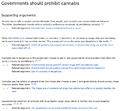






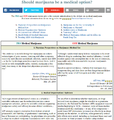







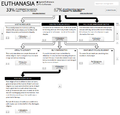

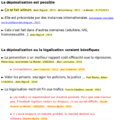


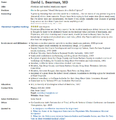
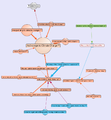
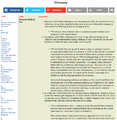
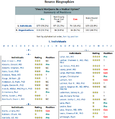
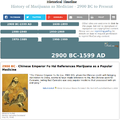
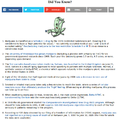
Enable comment auto-refresher